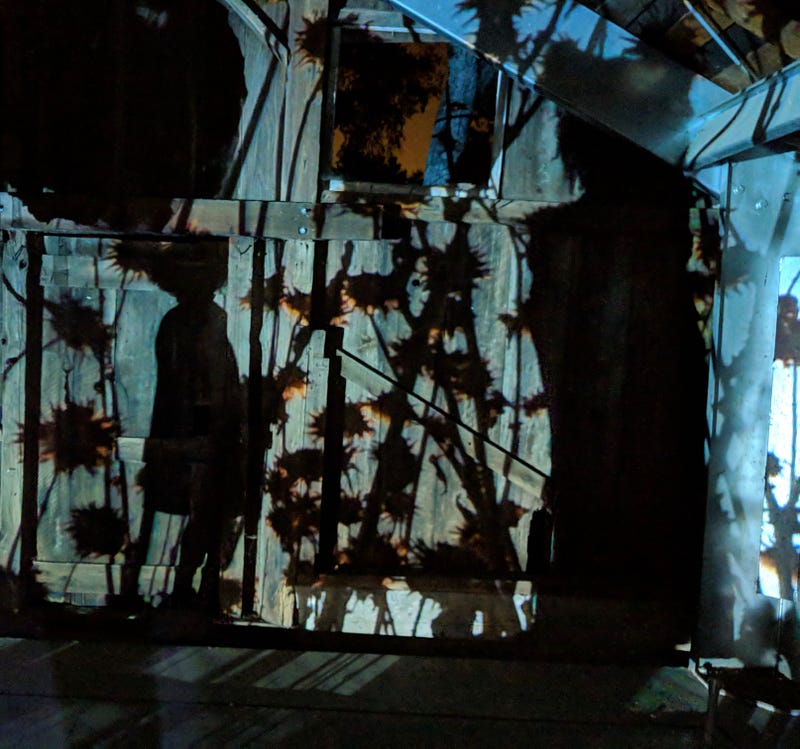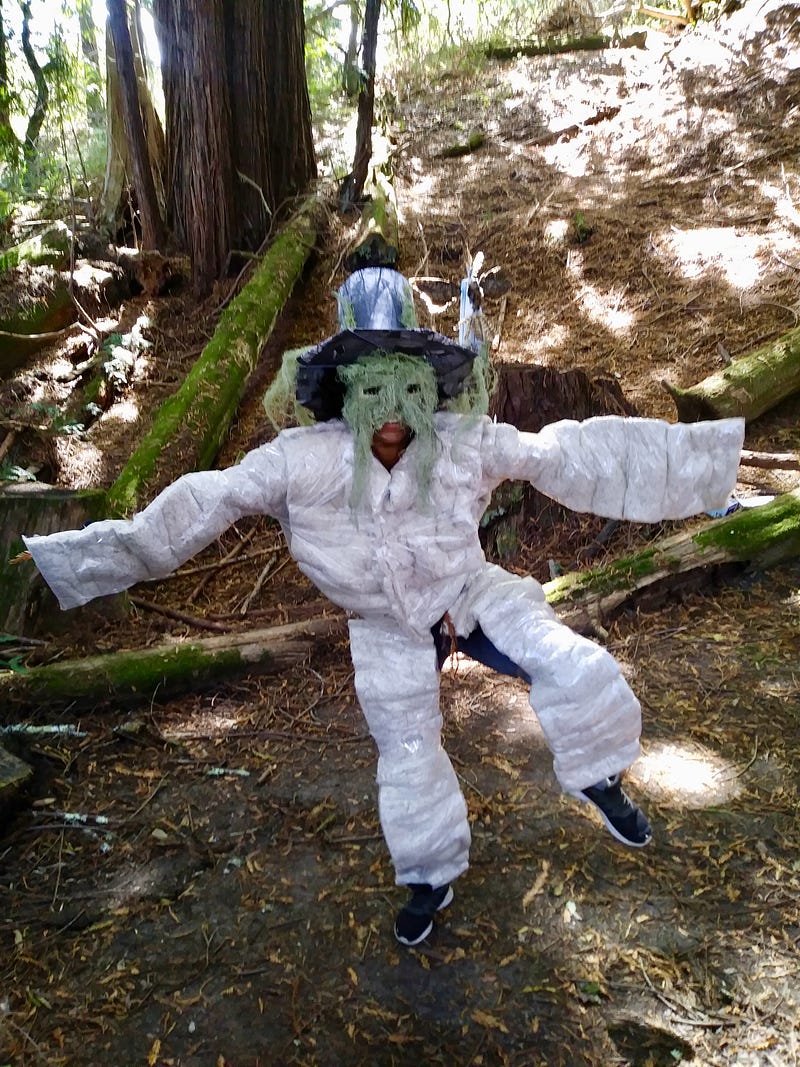Get to know the 2019 SFFILM Documentary Film Fund finalists
Get to know the 2019 SFFILM Documentary Film Fund finalists

The SFFILM Makers team has selected 11 outstanding projects to be in the running for this year’s Documentary Film Fund grants, which support feature-length docs in the post-production phase. A total of $125,000 will be distributed to the winning projects in this cycle, the results of which will be announced in late August.
Find out more about this and other filmmaking grant opportunities at sffilm.org/makers.
The Doc Film Fund has supported a wide range of important non-fiction films in recent years, including Ljubo Stefanov and Tamara Kotevska’s Honeyland, which won a record number of juried awards at the 2019 Sundance Film Festival; RaMell Ross’s Hale County This Morning, This Evening, which won a Special Jury Prize for Creative Vision at Sundance 2018; Peter Nicks’s The Force, which won the 2017 Sundance Film Festival Directing Award for documentary and SFFILM Festival’s Bay Area Documentary Award; Peter Bratt’s Dolores, which won the 2017 SFFILM Festival Audience Award for Documentary Feature following its Sundance premiere; and Zachary Heinzerling’s Cutie and the Boxer, which won Sundance’s Directing Award for documentary and was nominated for the 2014 Academy Award for Best Documentary Feature; among many others.
Since its launch in 2011, the SFFILM Documentary Film Fund has distributed $750,000 to advance new work by filmmakers nationwide. The 2019 Documentary Film Fund is supported by the Jenerosity Foundation.
2019 DOCUMENTARY FILM FUND FINALISTS *

Apolonia, Apolonia
Lea Glob, director; Sidsel Lønvig Siersted, producer
Underground rebels meet money and high society in the art scenes of the world — with bohemian Paris, Brussels, Copenhagen, New York, and Los Angeles as backdrops, this coming-of-age story portrays a French-Polish female painter’s personal and artistic development, from the maturing of a talent to the leap into the commercial art scene.
— — — — — — — — — — — — — — — — — — — — — — — — — —

Going to Mars: The Nikki Giovanni Project
Joe Brewster, Michèle Stephenson, co-directors/producers
Going to Mars: The Nikki Giovanni Project pushes the boundaries of biographical documentary film to reveal the enduring influence of one of America’s greatest living artists and social commentators. Combining parallel cinematic story editing with visually innovative treatments of Nikki Giovanni’s poetry, along with intimate vérité, rich archival footage, and her own captivating contemporary performances, this film recounts the story of the artist and her works of resistance through the tumultuous historical periods in which she lived — from the Civil Rights Movement, to the Black Arts Movement, to present-day Black Lives Matter.
— — — — — — — — — — — — — — — — — — — — — — — — — —

The Golden Thread
Nishtha Jain, director/producer
Outside Kolkata, several jute mills crank on, virtually unchanged since the industrial revolution. Powered by steam and sweat, work is a dance to the dictates of profit and century-old machines. Putting such work into conversation with the creative labor of filmmaking, The Golden Thread puts the analogue and digital, the early industrial and post-industrial, into experimental recombination.
— — — — — — — — — — — — — — — — — — — — — — — — — —

Idaho
Nicolas Molina, director; Josephine Schroeder, producer
Joaquín Agüil and Victor Jara, both Patagonian gauchos, are hired as sheep farmers at a ranch in the west of the United States, to look after thousands of sheep. Accompanied only by their horses and dogs, they have a mission: take a thousand sheep up into the mountains for the summer and come back with all of them at the end of the season. They will herd their flocks, protecting them from coyotes and pumas, in extreme conditions, in a foreign land that they think they can handle.
— — — — — — — — — — — — — — — — — — — — — — — — — —

Light Darkness Light
Landon Van Soest, director/producer; Paul Trillo, Tom Yellin, Jo Budzilowicz, producers
Ian Nichols, a 76-year-old blind Anglican priest, becomes one of the first people in the world to attempt sight with an implanted bionic eye. Through Ian’s extraordinary odyssey, the film explores timely, provocative questions about perception, memory, faith, technology, and the nature of human reality that have broad implications for us all.
— — — — — — — — — — — — — — — — — — — — — — — — — —

Mayor
David Osit, director/producer
Mayor follows a charismatic leader’s quest to build the city of the future in a land paralyzed by its past.
— — — — — — — — — — — — — — — — — — — — — — — — — —

The Neutral Ground
CJ Hunt, director; Darcy McKinnon, producer
The Neutral Ground is a feature-length documentary about New Orleans’ fight over monuments and America’s centuries-long relationship with the Lost Cause. The film follows writer and comedian CJ Hunt as he documents the struggle to remove and the struggle to preserve New Orleans’ confederate monuments. After witnessing this fight in his adopted city, Hunt then explores how we understand a collective history as a nation with a contentious past.
— — — — — — — — — — — — — — — — — — — — — — — — — —

Tomboy
Lindsay Lindenbaum, director; Eleanor Emptage, producer
Tomboy shines a light on a hidden generation of women drummers, in a field that was once the exclusive domain of men. The dynamic narratives of these trailblazing women interweave, launching a timely dialogue on gender and artistry that extends far beyond the musical sphere.
— — — — — — — — — — — — — — — — — — — — — — — — — —

Xa-lyu K’ya (World of Mountaintops)
Carlo Nasisse, Geronimo Barrera, directors/producers
What begins as a story of man’s relationship to the land quickly evolves into something much more, as mist, jaguars, carbon, hallucinogenic mushrooms, and dreams announce themselves as crucial actors in an environmental and epistemic conflict. In Xa-lyu K’ya (World of Mountains), the Oaxacan Chatino people, international corporations, and environmental NGOs become entangled in the debate over the fate of Mexico’s rapidly disappearing cloud forest.
* Due to the sensitive nature of their subjects, two finalists elected to omit their project details from this announcement.




